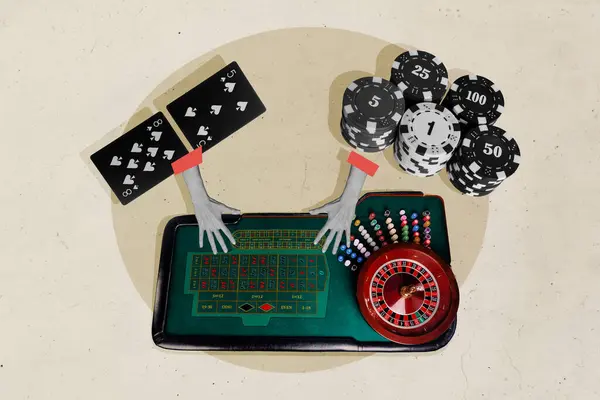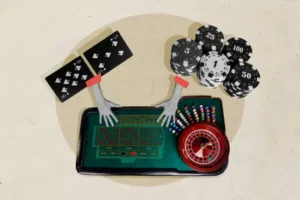Smarter Online Casino Play: Using a Crypto Research Report Mindset to Manage Risk

If you love the drama of online casinos—the lights, the live dealers, the bonuses—but hate the feeling of chaotic decision-making, borrow a page from crypto analysts. Before traders act, they read, score, and compare. You can use the same approach: anchor your week to one reliable crypto research report, practice disciplined note-taking, and carry those habits straight into slots, blackjack, and weekend parlays. The result isn’t a magic win rate; it’s clarity, calmer sessions, and a bankroll that lasts.
Why “Research Mode” Works for Casino Players
Casino games are built on math you can’t control; your edge is process. Crypto analysts thrive because they separate narrative from numbers and make repeatable frameworks. You can do the same by writing a one-page plan for each session (budget, stop-loss, time box), reviewing outcomes weekly, and tweaking only one variable at a time. Think like an auditor: if you can’t explain a bet or a game’s variance in plain language, you probably shouldn’t touch it.
The SCORE Mindset (Simplified for Players)
Good research frameworks grade projects across dimensions—sector heat, technology/security, market execution, team/capital, and data. Some crypto research hubs even publish an explicit “SCORE” model to make evaluations comparable. Translate that to casino play like this: choose games with known RTP, verify rules and house edges (“technology & security”), review site operations and limits (“market & operations”), and track your own data so the next decision is informed, not impulsive. :contentReference[oaicite:0]{index=0}
Build a One-Page Session Plan
- Budget: A fixed stake you can afford to lose (entertainment money).
- Time box: 45–60 minutes per session—set a timer before you log in.
- Game mix: Low-volatility slots to warm up; one table game you know well.
- Stop rules: One profit skim rule (e.g., bank 30% when ahead) and one hard stop-loss.
- Notes: Jot what happened, not how you felt. Data beats vibes next week.
Turning Research into Routine
Pick a day (say, Friday) to scan one concise analysis and distill it into three bullet points: What is the thesis? What could go wrong? What evidence would change my mind? Research centers that curate “selective reports” are built for this—they compile project notes, summarize risks, and highlight catalysts so you don’t drown in feeds. Reading with this posture trains your brain to slow down and verify—exactly the skill you need before you click “Spin” or “Deal.” :contentReference[oaicite:1]{index=1}
Table: From Crypto Research Habits to Casino Habits
| Research Habit | Casino Translation | Outcome |
|---|---|---|
| Score risks across dimensions | Check house edge, rules, and volatility before playing | Fewer “surprise” losses |
| Read one curated report per week | One new game studied per week, not five random ones | Deeper knowledge, better pacing |
| Log decisions and results | Keep a session ledger (date, game, stake, P/L) | Visible patterns; easier improvements |
| Pre-mortem (“What could break?”) | Write stop-loss and profit-skim rules before you start | Lower tilt risk |
Variance, Explained the Research Way
Analysts live with uncertainty by framing it. Do the same with variance. Low-volatility slots return small wins often; high-volatility titles pay rarely but spike when they do. Blackjacks with good rules tighten variance; side bets blow it open. Treat each choice as a conscious variance trade, not a mood. If you’re already emotionally invested in a weekend match, pick calmer casino games that day and save the high-variance hunts for quiet midweek sessions.
Applying “Selective” Thinking to Bonuses
Just as curated project reports filter noise, you should filter promotions. Translate every bonus into plain English: wagering requirement, contribution rates for your preferred games, time limit, max conversion. If a promo forces you into titles you dislike, skip it. Selectivity is a skill, not a personality trait.
Live Games, Live Bets: Two Different Speeds
Live-dealer tables and in-play sports markets look similar (fast, social, intense), but your rules shouldn’t be. Cap the number of live decisions per hour; avoid doubling stakes to “win it back”; and if you hit two losses in a row during a live stretch, take a five-minute reset. Research mode says: reduce decision frequency when emotions rise.
Why a Curated Research Hub Helps—even if You’re Here for Casino
Markets and casinos share a core truth: you are the product manager of your attention. A curated hub that publishes selective project analyses, outlines a scoring model, and releases periodic deep dives keeps your prep time short and your signal quality high—so the rest of your week can be play, not doomscroll. Some hubs even post focused project analyses (for instance, on emerging L2s or new infrastructure names), which is a good template for how concise your own casino notes should be. :contentReference[oaicite:2]{index=2}
Weekly Ritual You Can Steal
- Friday preview: Read one curated analysis; write three bullets.
- Saturday play: One planned casino session with strict time box.
- Sunday audit: 10 minutes logging results and one tweak for next week.
Bottom Line
You don’t need to become a quant to enjoy online casinos more. You just need a research habit: short, selective reading; a scoring mindset before you play; and a ledger that turns nights into knowledge. Borrow the discipline of crypto analysts, and your sessions will feel calmer—even when the reels don’t. Pick your reports carefully, pick your games deliberately, and let process—not impulse—be the loudest voice at the table.
Note: This article is for entertainment and educational purposes. Always gamble responsibly and within your jurisdiction’s laws.





